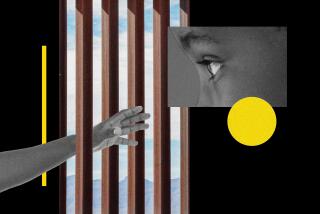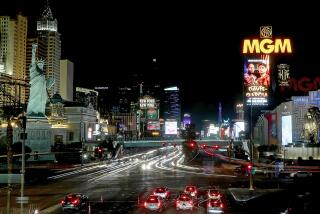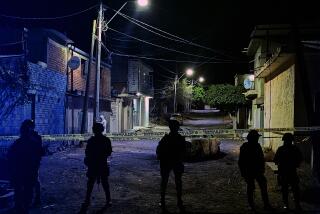Japan’s war with its past
NORTH KOREAN dictator Kim Jong Il’s nuclear ambitions haven’t won him any admirers in China or any concessions from the United States, but they are turning Japan into a more implacable -- and militarily more independent -- foe.
If 9/11 was a politically transformative event in the United States, North Korea’s weapons tests have had a similar effect on Japan. Though Tokyo has long been edging away from its traditionally pacifist stance, the move has been accelerated by provocations such as Pyongyang’s missile tests and its first test of a nuclear weapon in October. Hence the election of a new prime minister, the Liberal Democratic Party’s Shinzo Abe, who promises to revise Japan’s pacifist constitution, and a parliamentary victory last week for hawkish Japanese nationalists.
A national debate about the role of the military is overdue in Japan, which has operated since 1947 under a constitution that doubtless seemed timeless and inspirational when it was drafted by U.S. occupiers after the war, but now seems hopelessly quaint. What else can one say about a document whose preamble states the nation can trust in “the justice and faith of the peace-loving peoples of the world” to maintain its security? With Kim pointing missiles across the Sea of Japan and the U.S. too bogged down in the Middle East to devote much attention to defending Japan, justice and faith are in short supply. Small wonder that Japanese pacifists have fared poorly at the polls.
The constitution hasn’t stopped Japan from building one of the world’s most advanced militaries. The hope now is that the world’s second-largest economy can shed its ghosts to help more with international peacekeeping operations. Japan has contributed to such missions but in a very limited way (it sent 600 noncombat troops to Iraq.) A less restrictive constitution for Japan would also enhance U.S. security. Right now, it’s not even clear in Japan if it would be constitutional to shoot down a North Korean missile bound for Hawaii.
Although the debate is welcome and a new constitution would pay dividends for this country, the discussion has been tainted by the stance of Japanese conservatives and the nation’s unwillingness to atone as fully as Germany has for its World War II behavior. Many in Japan downplay or deny imperial atrocities in Asia. Victims richly deserving of reparations have been turned away by Japanese courts, while the insistence of national leaders to bow before war criminals at the infamous Yasukuni Shrine justifiably infuriates Chinese and Koreans. Also worrisome was last week’s approval in parliament’s upper house of a bill calling on schools to teach respect for tradition and love of the homeland. Such changes in education are a key goal of nationalists that until now have been rejected by the mainstream.
Abe said Tuesday that he wants to pass legislation next year calling for a referendum on reforming the constitution. Such changes face a long, uphill political battle. Abe and his right-wing supporters could make them a lot more palatable by toning down the nationalist rhetoric, unambiguously apologizing for imperial aggression and keeping propaganda out of the schools.
More to Read
Start your day right
Sign up for Essential California for news, features and recommendations from the L.A. Times and beyond in your inbox six days a week.
You may occasionally receive promotional content from the Los Angeles Times.






